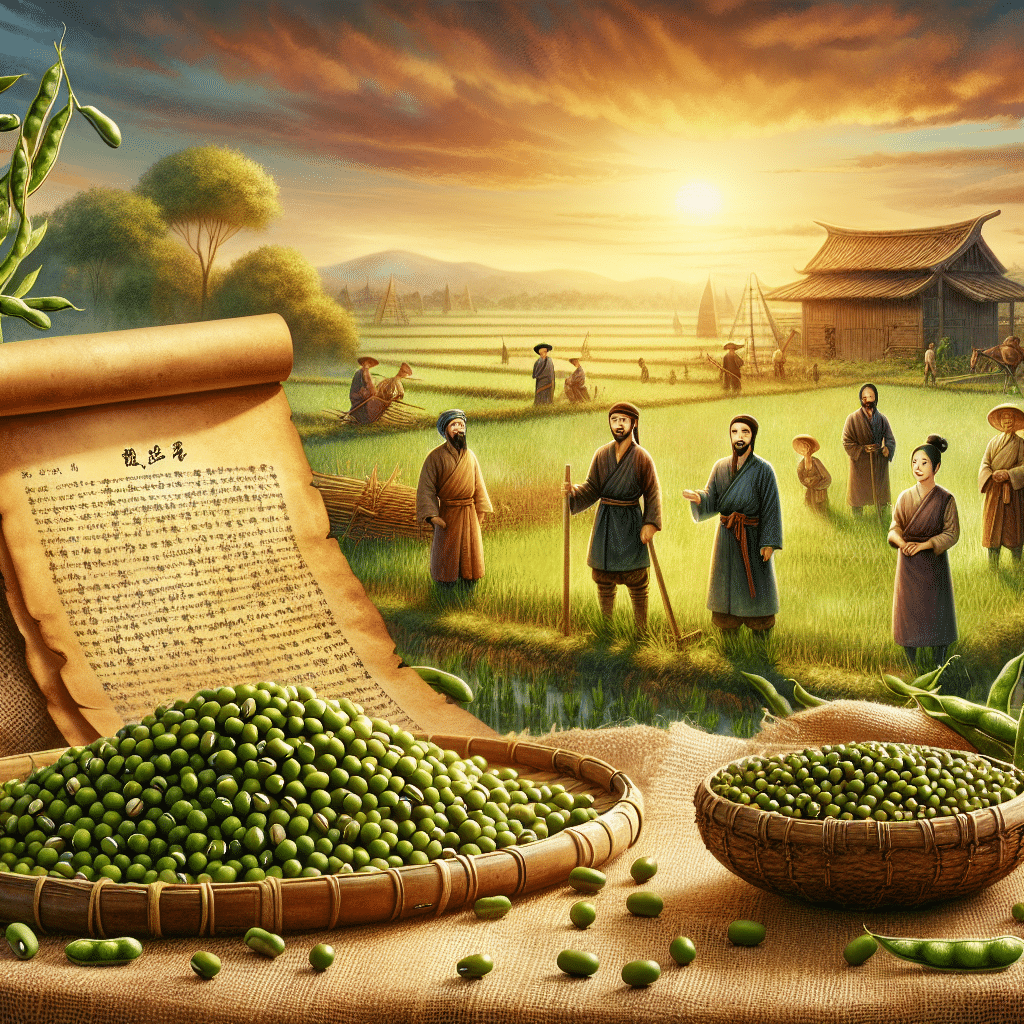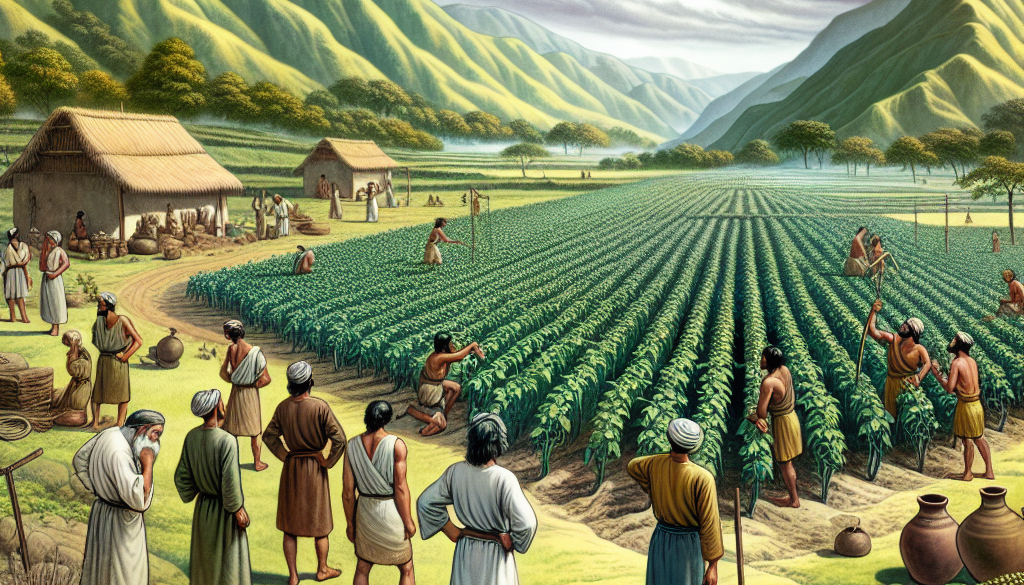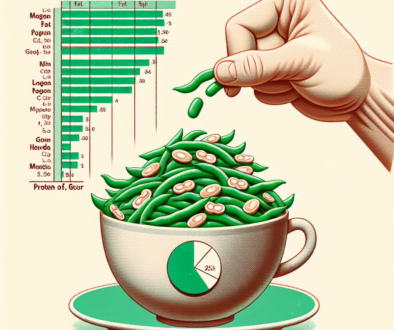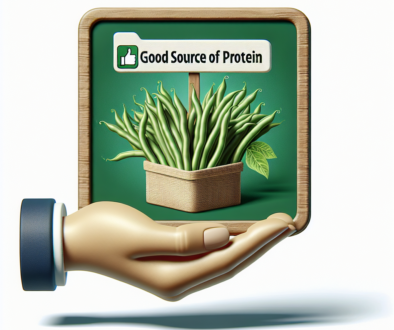Historical Origins of Mung Beans
-
Table of Contents
- Mung Beans: Tracing the Historical Roots of a Nutritional Powerhouse
- The Ancient Beginnings of Mung Beans
- Spread Across Asia and Beyond
- Mung Beans in Historical Texts and Records
- Cultivation and Harvesting Practices
- Nutritional Profile and Health Benefits
- Mung Beans in Cuisine
- Modern-Day Cultivation and Consumption
- Case Studies: Mung Beans in Sustainable Agriculture
- Conclusion: The Timeless Legume
- Discover ETprotein’s High-Quality Mung Bean Protein Products
Mung Beans: Tracing the Historical Roots of a Nutritional Powerhouse

Mung beans, small green legumes, may seem inconspicuous at first glance, but they carry a rich history that spans thousands of years. Known for their versatility and nutritional benefits, mung beans have been a staple in various cuisines, particularly in Asia. This article delves into the historical origins of mung beans, exploring their journey from ancient times to modern-day kitchens.
The Ancient Beginnings of Mung Beans
The story of mung beans begins in the Indian subcontinent, where they were first cultivated. Archaeological evidence suggests that mung beans have been part of the human diet for thousands of years, with their domestication dating back to 1500 BCE or even earlier. Ancient texts and scriptures, including the Vedas, mention the use of mung beans, indicating their significance in early Indian culture.
Spread Across Asia and Beyond
As trade routes expanded, mung beans began to traverse across Asia. By the 5th century BCE, they had reached China, where they became a crucial element in the local diet. The Chinese valued mung beans for their cooling properties and incorporated them into traditional medicine. The beans’ journey did not stop there; they eventually made their way to Southeast Asia, becoming a dietary mainstay in countries like Thailand, Indonesia, and the Philippines.
Mung Beans in Historical Texts and Records
Historical texts from various cultures provide insights into the use of mung beans throughout the ages. Chinese medical texts from the Han Dynasty describe mung beans as a food that could detoxify the body and alleviate heatstroke. In Ayurvedic medicine, mung beans have been recommended for their balancing effect on the body’s doshas (energies).
Cultivation and Harvesting Practices
The cultivation of mung beans has evolved over the centuries, adapting to different climates and agricultural practices. Traditional methods of planting, irrigation, and harvesting have given way to more modern techniques, yet some farmers still follow age-old practices to yield the best crops.
- Planting and Sowing: Mung beans are typically sown in sandy loam soils that provide good drainage.
- Irrigation: While mung beans are drought-resistant, they require consistent moisture for optimal growth.
- Harvesting: The beans are harvested when the pods mature and begin to dry, usually by hand to prevent damage to the plants.
Nutritional Profile and Health Benefits
Mung beans are not only historically significant but also nutritionally rich. They are an excellent source of protein, dietary fiber, vitamins, and minerals. Their low glycemic index makes them suitable for diabetic diets, and their high protein content is ideal for vegetarian and vegan diets.
- Protein: Mung beans are a great source of plant-based protein, essential for muscle repair and growth.
- Fiber: The high fiber content aids in digestion and promotes a feeling of fullness.
- Vitamins and Minerals: Mung beans are rich in vitamins like B6 and minerals such as magnesium, potassium, and iron.
Mung Beans in Cuisine
Mung beans have been incorporated into a variety of dishes across different cultures. In Indian cuisine, they are used in dals and curries. In Chinese cooking, mung bean sprouts are a common ingredient in stir-fries and soups. Mung bean noodles, also known as glass noodles, are a staple in Asian culinary traditions.
Modern-Day Cultivation and Consumption
Today, mung beans are cultivated worldwide, with major producers including India, China, and Myanmar. The global demand for mung beans continues to grow, driven by their health benefits and versatility in various recipes.
Case Studies: Mung Beans in Sustainable Agriculture
Recent studies have highlighted the role of mung beans in sustainable agriculture. Their ability to fix nitrogen in the soil makes them an excellent crop for improving soil fertility. Additionally, their drought-resistant nature allows them to thrive in arid regions, making them a valuable crop for food security.
Conclusion: The Timeless Legume
The historical origins of mung beans reveal a journey that spans continents and cultures. From ancient times to the present day, mung beans have been valued for their nutritional benefits and culinary versatility. As we continue to explore sustainable food sources, the mung bean stands out as a crop with a rich past and a promising future.
Discover ETprotein’s High-Quality Mung Bean Protein Products
If you’re looking to incorporate the nutritional benefits of mung beans into your diet, ETprotein offers a range of high-quality mung bean protein products. Their organic mung bean protein is perfect for those seeking plant-based protein options that are non-GMO and allergen-free. Whether you’re a food manufacturer or a health-conscious consumer, ETprotein’s products are an excellent choice for adding a nutritious boost to your offerings.
About ETprotein:
ETprotein, a reputable protein Chinese factory manufacturer and supplier, is renowned for producing, stocking, exporting, and delivering the highest quality organic bulk vegan protein and plant proteins. They include Organic rice protein, clear rice protein, pea protein, clear pea protein, pumpkin seed protein, sunflower seed protein, mung bean protein, etc. Their offerings, characterized by a neutral taste, non-GMO, allergen-free attributes, cater to a diverse range of industries. They serve nutraceutical, pharmaceutical, cosmeceutical, veterinary, as well as food and beverage finished product distributors, traders, and manufacturers across Europe, USA, Canada, Australia, Thailand, Japan, Korea, Brazil, and Chile, among others.
ETprotein specialization includes exporting and delivering tailor-made protein powder and finished nutritional supplements. Their extensive product range covers sectors like Food and Beverage, Sports Nutrition, Weight Management, Dietary Supplements, Health and Wellness Products, and Infant Formula, ensuring comprehensive solutions to meet all your protein needs.
As a trusted company by leading global food and beverage brands and Fortune 500 companies, ETprotein reinforces China’s reputation in the global arena. For more information or to sample their products, please contact them and email sales(at)ETprotein.com today.














